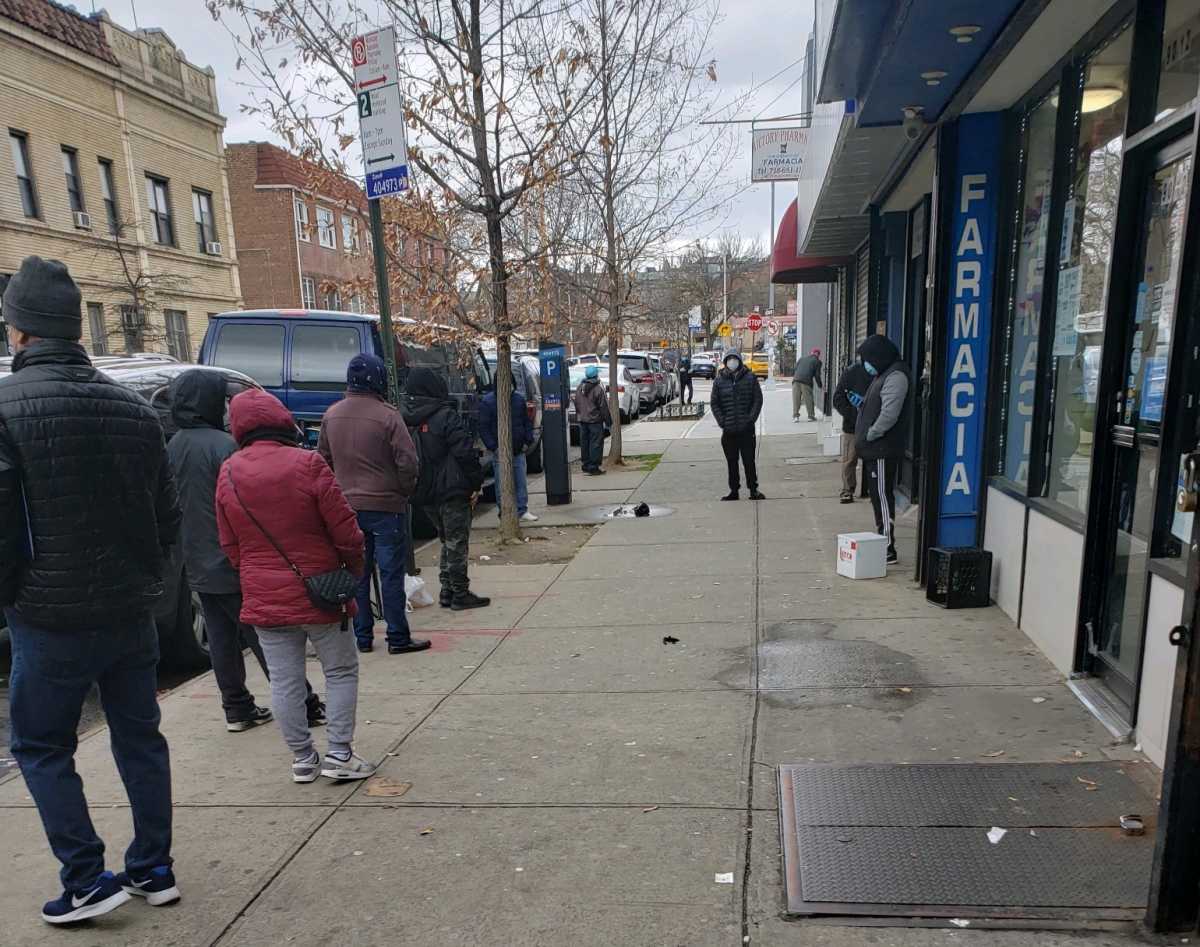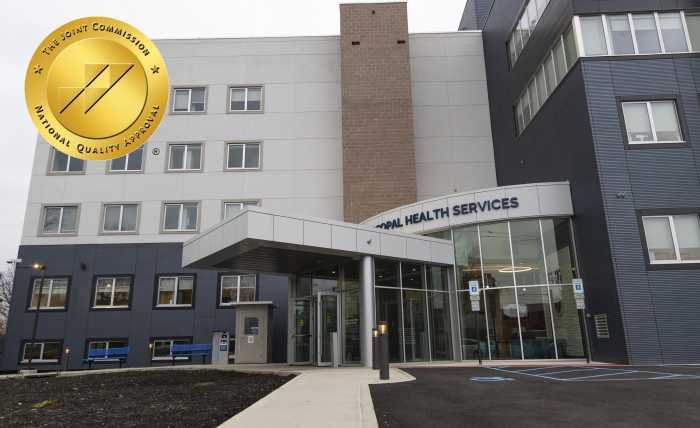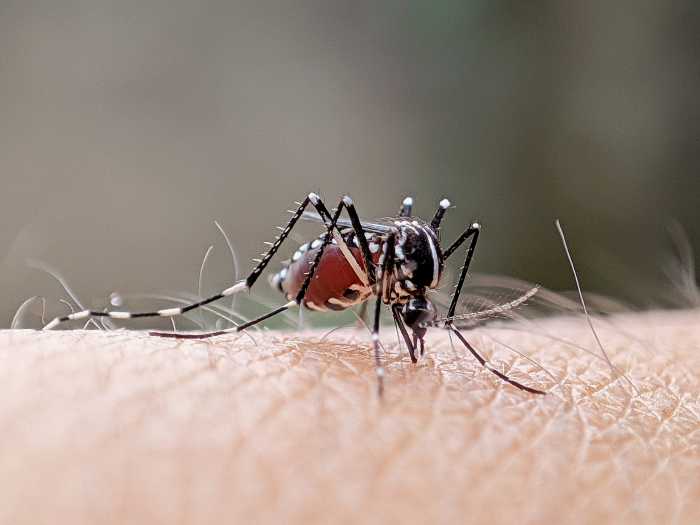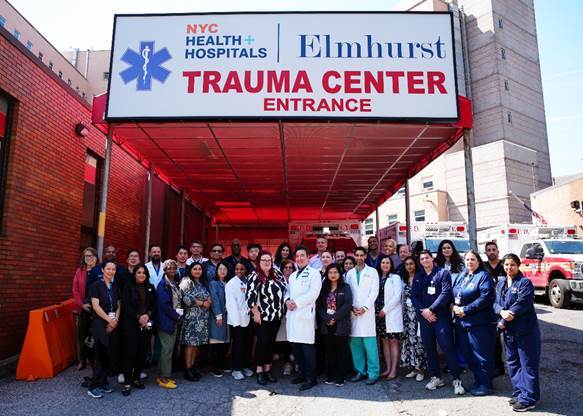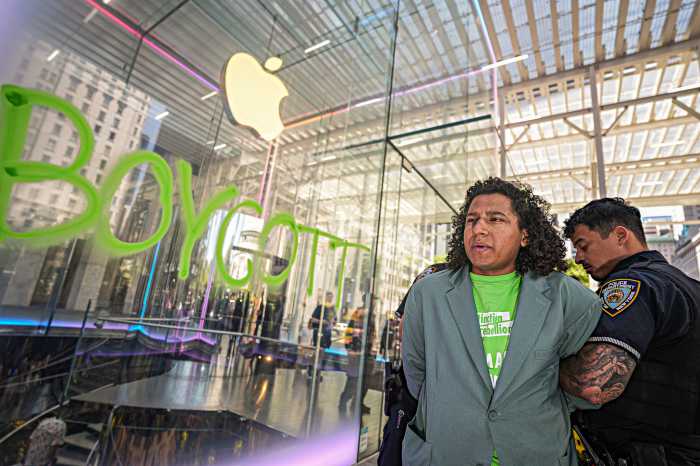BY KARMINA L. FONSECA
“Where the devil is loose” is how Rogelio Fernández describes the area around Elmhurst, considered the epicenter of COVID-19 in New York.
The 64-year-old Cuban that works as a pharmacist at the Three J’s drugstore says that now is when “to show one’s face.” The pharmacy is located just eight blocks from Elmhurst Hospital, one of the hardest hit health centers by the coronavirus outbreak.
Despite being sick with what he described as “a different cold, a flu,” he continues to work, especially since other colleagues “have disappeared.”
“It is not that they are sick, they’re just home waiting for the pandemic to pass,” he explained.
Because of the epidemic, pharmacies have been forced to cut hours and lay off employees, but those in the front lines continue to help patients overcome the health crisis, even by risking their health.
“Here we are, all seven days [of the week], imagining, ‘what are we going to do?’ I’ve studied this and been at the forefront of disease all my life, am I going to run away? Just like if you were a firefighter and there was a fire, what are you going to do? Run away?” he questioned.
“Until I have the strength … and health”
In the case of Nelson Flores, a pharmacist at Lincoln Care Drugs in the Bronx, the scenario is chillingly similar.
“Few doctors want to see patients,” he said. “They do it virtually or by phone, so it is up to pharmacists to make many calls to health professionals to request clients’ prescriptions or medical treatments.”
However, Flores is determined to continue to work “until I have the strength … and health,” he said.
According to a joint release from pharmaceutical organizations representing the interests of all pharmacists in the United States, pharmacists are among the nation’s most accessible healthcare professionals, with 90 percent of Americans living within five miles of a community pharmacy. They are medication experts, providing patient care in a variety of settings, including hospitals, clinics, community pharmacies and physician offices.
As health professionals with direct contact with the public, apothecaries are also among those most exposed to contracting the coronavirus disease.
“No one knows who has the virus. The minute I leave my house and arrive here I am in a bit of a panic, but you have to do your job, too,” Flores said on the anxiety of having to work despite the fear of contracting COVID-19. “I had a case where a woman came to buy vitamins and said that someone in her family was infected with the virus. At that moment I panicked because who knows if that person may have it, too. The lady bought her vitamin and we started to disinfect everything in the pharmacy.”
Zero vaccines due to lack of protection
Among the services that pharmacies are offering to their clients is curbside prescription pickup so patients don’t have to get out of their cars, waiving prescription delivery fees and individually packaging each day’s medications for patients. What they are declining to do is apply vaccines.
“The only thing we’ve stopped doing is apply immunizations because we are not getting what they call PPE [acronym for Personal Protective Equipment],” Fernández said with his strong Cuban accent, adding that the city gives preference to hospitals. “All the news is that nurses need PPE, doctors need PPE, but if I immunize, I’m doing the same thing nurses do, so that’s where the problem remains.”
Despite the shortage of protective equipment, Fernández says that currently they do have masks and that to minimize the risk of infection, they try to attend to people at a distance.
“There is a certain risk,” he repeated. “Already three who work here are no longer coming because they are sick … one tested positive but he’s fine. He has been improving.”
A humorous side
Although fear has become part of their everyday life, their desire to help in these times of crisis has overcome it, and is proving to be a powerful motor to move forward. Even to the extent of seeing a humorous side to the impromptu health crisis.
“What is not being sold is Viagra; its sales are under 90 percent,” Fernández joked, referring to how the sale of the famous little blue pill for erectile dysfunction has dropped.
Flores good-humoredly added that in his pharmacy “they play more Lotto than ask for prescriptions,” indicating how many people risk going out just to try their luck with the lottery. “One cannot stop living as long as you are taking precautions,” emphasized the pharmacist of Dominican origin.
This story first appeared on noticiali.com/el-correo.

